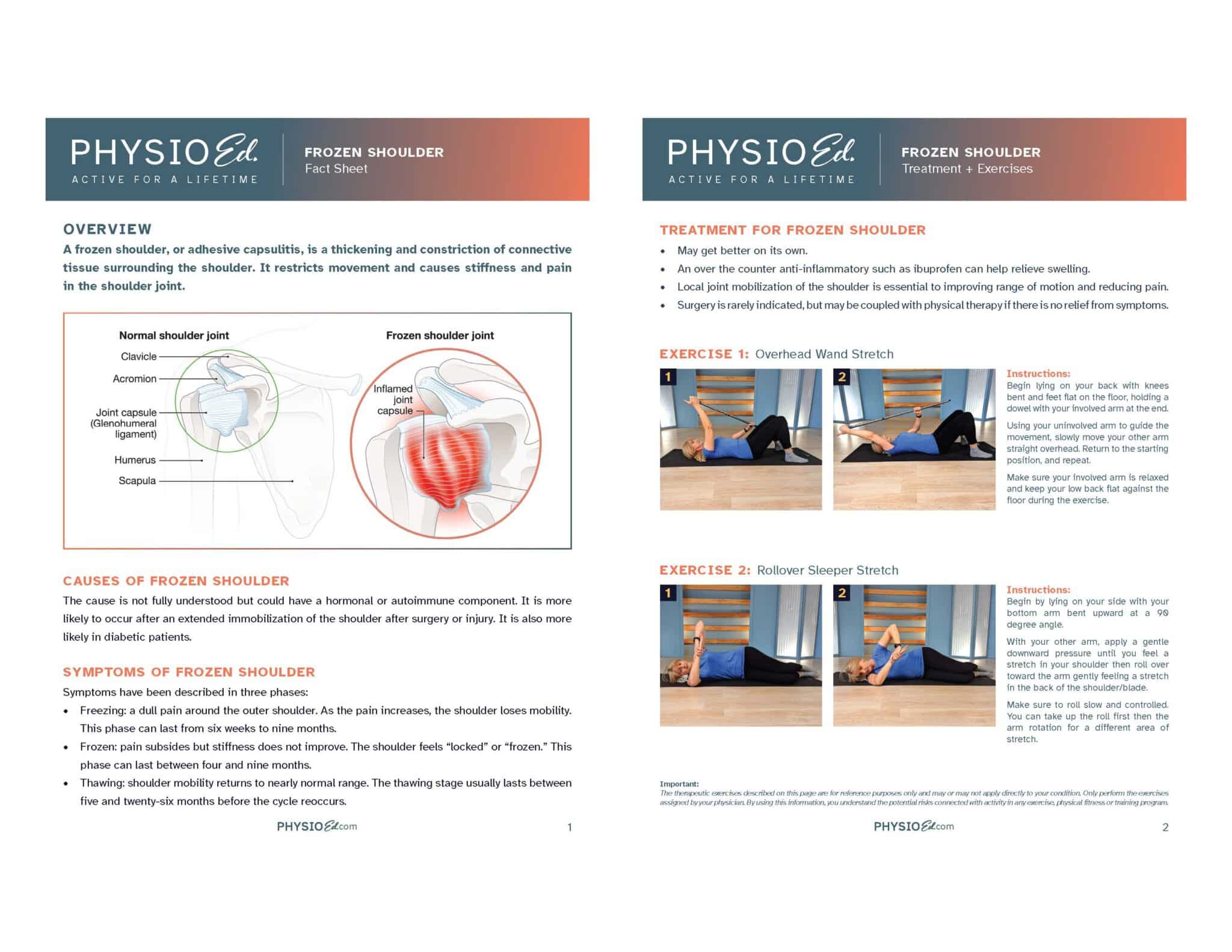If you have frozen shoulder, you know how painful and frustrating it can be. Frozen shoulder, or adhesive capsulitis, is a condition that makes your shoulder joint stiff and hard to move. It can affect one or both of your shoulders and last for months or even years. Sometimes, frozen shoulder happens after an injury or a period of not using your shoulder. Other times, it can be linked to health problems like diabetes or arthritis. Frozen shoulder can make it difficult to do everyday things like getting dressed, taking a shower, or reaching for something. It can also disturb your sleep and affect your mood.
In this fact sheet, we will share with you some helpful tips and exercises that you can do at home to manage your frozen shoulder. These exercises will help you improve your shoulder’s movement, strength, and flexibility. You can print this fact sheet in PDF format and follow the exercises at your own pace. We hope this fact sheet will help you understand your frozen shoulder better and give you some relief.









